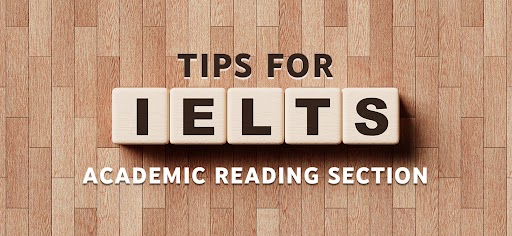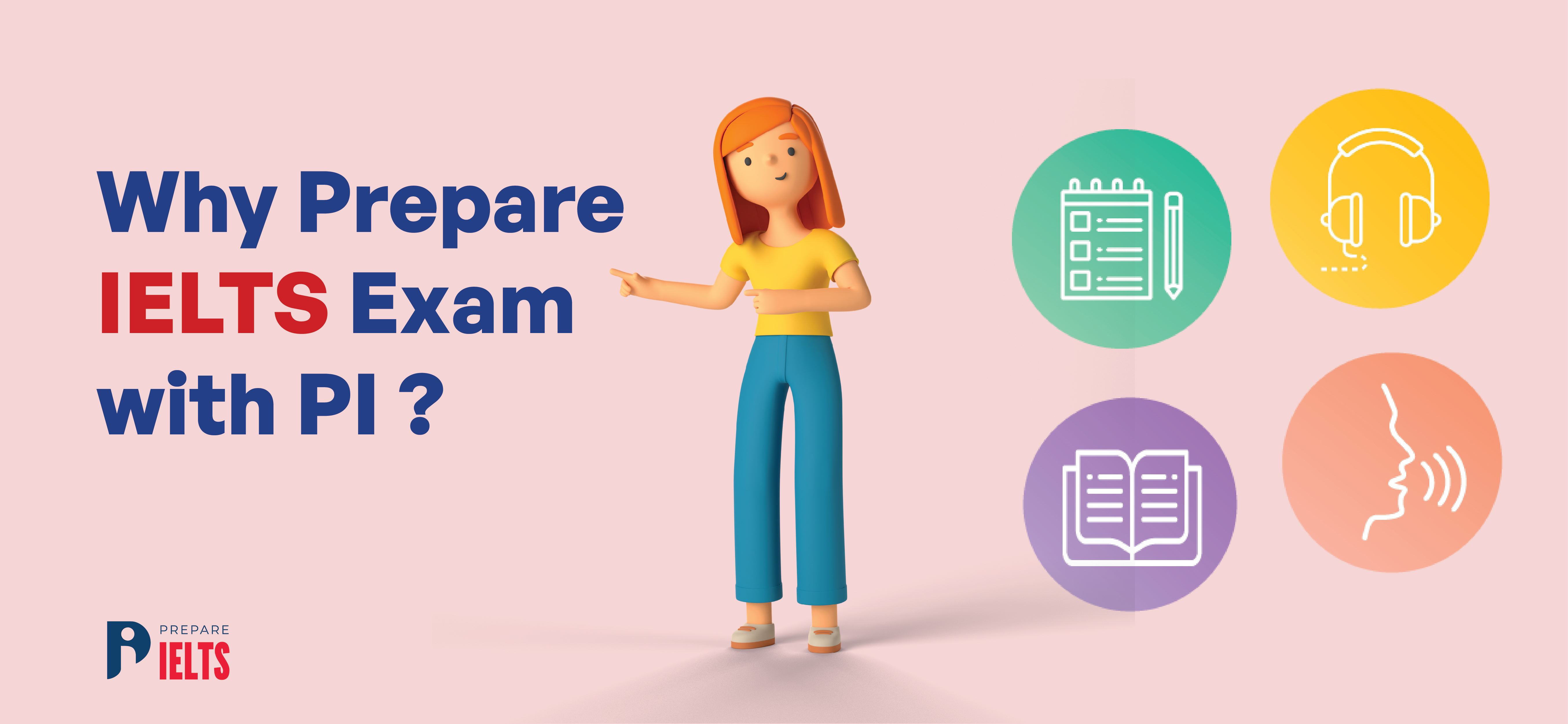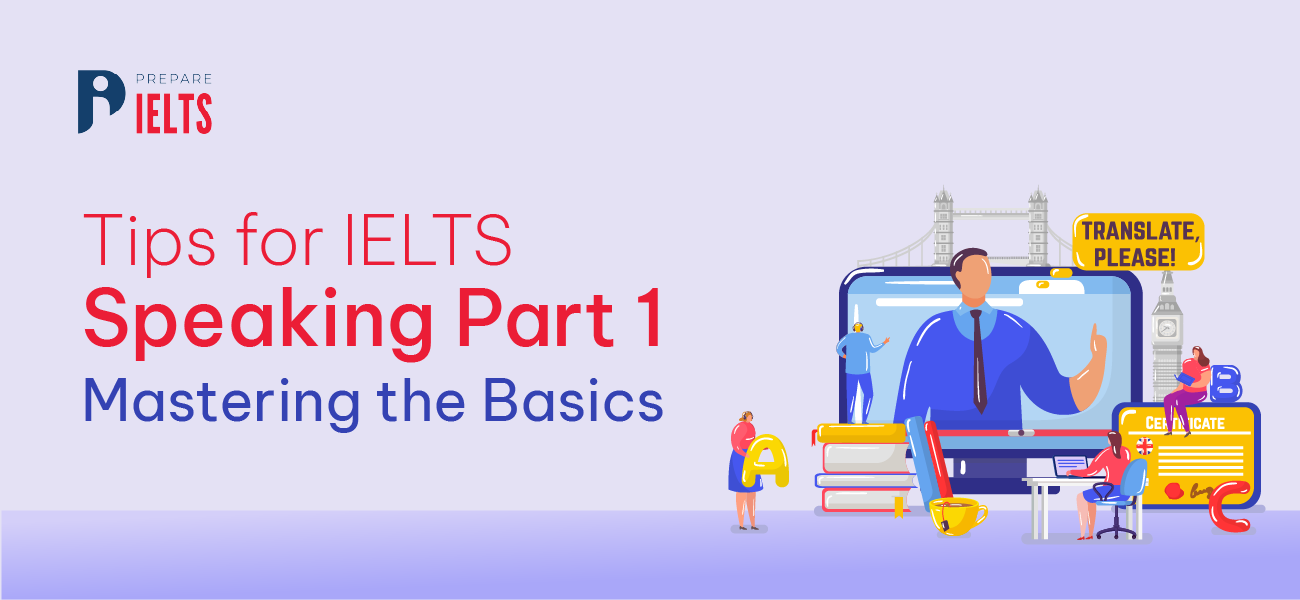Tips for the Reading Section of the Academic IELTS
PI - Prepare IELTS
1 Mar, 2023

The Reading section of the IELTS exam is designed to test your ability to read and understand academic texts. It consists of 40 questions, which you must answer within 60 minutes. In this blog post, we'll discuss some tips and strategies to help you do well on the Reading section of the IELTS exam.
Check the basic tips that you should follow to prepare for the reading section of IELTS Academic Test.
Before you begin studying, it's essential to understand the format of the Reading section. The IELTS Reading section includes three passages, each followed by 13-14 questions. The passages can come from a variety of sources, including books, journals, and newspapers. Understanding the format will help you better prepare for the exam and understand how to manage your time during the test.
One of the most significant challenges of the IELTS Reading section is the limited time you have to read the passages and answer the questions. To improve your reading speed, try to practice reading quickly while maintaining your comprehension. Start by reading shorter articles and gradually work your way up to longer texts. Additionally, try to focus on the main ideas and important details of the passage rather than getting caught up in the minor details.
Active reading strategies can help you understand the material more effectively. One effective strategy is to annotate the text as you read. Underline or highlight important sentences and write notes in the margins to help you remember key information. This will help you retain the information and answer questions more accurately.
Context clues are hints in the text that can help you understand unfamiliar words or concepts. Pay attention to how words are used in the context of the passage, and use that information to determine their meaning. This will help you better understand the text and answer questions more accurately.
Before you start answering questions, take a few moments to skim the passage quickly. This will give you an idea of the topic and the main ideas of the passage. Additionally, it will help you understand how the passage is organized, which can help you answer questions more accurately.
Pay attention to key words in the questions and use them to locate the relevant information in the passage. Additionally, look for synonyms and paraphrases of key words in the text, as the questions may use different words to describe the same concept.
The IELTS Reading section includes a variety of question types, including multiple choice, matching, and short answer questions. Practice different types of questions to become familiar with the format and develop strategies for answering them.
Having a strong vocabulary is essential for doing well on the IELTS Reading section. Make a list of unfamiliar words you come across in your practice, and learn their definitions. Additionally, try to use new words in your writing and speaking to reinforce your understanding.
Time management is critical during the IELTS Reading section. Try to budget your time so that you have enough time to read the passages and answer the questions. If you get stuck on a particular question, skip it and come back to it later. It's better to answer as many questions as you can than to get bogged down on a single difficult one.
The IELTS exam can be stressful, but it's essential to stay calm and focused during the Reading section. Take deep breaths, and don't panic if you don't know the answer to a question. Remember to read carefully, use active reading strategies, and stay focused on the main ideas of the passage.
Academic texts often contain specialized vocabulary that may be unfamiliar to non-native speakers. To prepare for the IELTS Reading section, make an effort to familiarize yourself with academic vocabulary. Look for academic texts online and make a list of unfamiliar words that you encounter. Use a dictionary to learn their meanings, and practice using the words in context.
Time-bound reading involves setting a timer for a certain amount of time and reading as much as you can within that time frame. This technique can help you develop your reading speed and improve your ability to manage your time during the exam. Start with short texts and gradually work your way up to longer passages.
Transition words are words or phrases that connect ideas and help the reader understand the relationship between them. Examples include "however," "in addition," and "moreover." Pay attention to these words in the passage, as they can provide important clues to help you understand the text and answer questions more accurately.
Understanding the author's purpose is an important part of reading comprehension. Practice identifying the author's purpose in the passages you read, whether it's to inform, persuade, or entertain. This will help you better understand the text and answer questions more accurately.
Reading widely is an excellent way to improve your reading skills and expand your vocabulary. Try to read a variety of texts from different sources, including newspapers, magazines, and academic journals. This will help you become more familiar with the types of texts you may encounter on the IELTS exam and improve your ability to read and understand academic English.
By following these tips and strategies, you can improve your chances of doing well on the Reading section of the IELTS exam. Remember to stay calm, manage your time effectively, and practice as much as possible. With dedication and hard work, you can achieve your goal of a high score on the IELTS exam.
The Reading section of the IELTS exam can be challenging, but with the right strategies and preparation, you can improve your performance and achieve a high score. By practicing active reading, skimming and scanning, and making educated guesses, you can save time and improve your accuracy. Additionally, using context clues, paying attention to transition words, and understanding the author's purpose can help you better understand the text and answer questions more accurately. Finally, familiarizing yourself with academic vocabulary and reading widely can help you expand your vocabulary and improve your reading skills. With these tips and strategies in mind, you can feel confident and well-prepared on exam day. Good luck!
Start practicing with a Free Sample Test for the IELTS Academic Reading section and prepare to get a good band score. Register Now for Free.

8 Jun, 2023

7 Aug, 2023

6 Jul, 2023

5 Jun, 2023

31 May, 2023

31 May, 2023

31 May, 2023

31 May, 2023

31 May, 2023

31 Jul, 2023

11
13 Nov, 2024
dsasdSince Indian students are writing and speaking in English with Indian accent, with not much exposure to foreign accent, it can be the cause of
1
24 Aug, 2023
IELTS Exam Eligibility Criteria 2023Since Indian students are writing and speaking in English with Indian accent, with not much exposure to foreign accent, it can be the cause of
1
21 Aug, 2023
Mastering IELTS Speaking General: The Ultimate Guide to Improve Your Communication SkillsSince Indian students are writing and speaking in English with Indian accent, with not much exposure to foreign accent, it can be the cause of
1
17 Aug, 2023
Mastering the IELTS Exam: Your Ultimate Preparation GuideSince Indian students are writing and speaking in English with Indian accent, with not much exposure to foreign accent, it can be the cause of